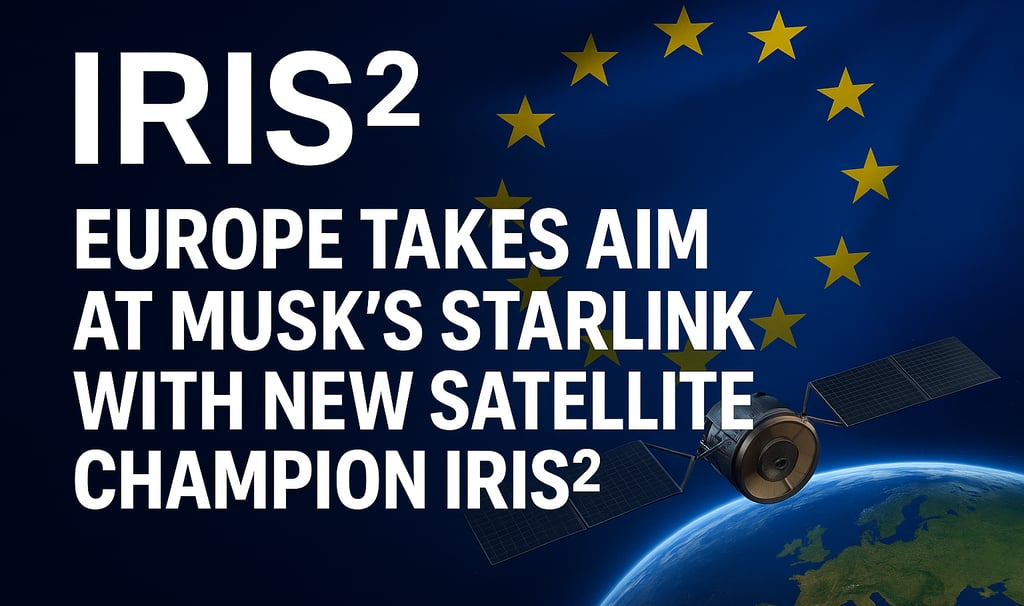Europe Challenges Musk’s Starlink with New Satellite Network IRIS²
The EU launches IRIS², a new satellite network to rival Elon Musk’s Starlink and secure Europe’s digital and defense autonomy by 2030.
Raja Awais Ali
10/23/20251 min read


Europe Takes Aim at Musk’s Starlink with New Satellite Champion IRIS²
The European Union has officially launched its new satellite project, IRIS² (Infrastructure for Resilience, Interconnectivity and Security by Satellite), in a strategic move to build a European alternative to Elon Musk’s Starlink and strengthen Europe’s space autonomy. The program marks a major step toward reducing dependency on U.S. private companies in critical digital and defense communications.
The European Commission approved the IRIS² project earlier this year, bringing together several European space agencies and private firms under one initiative. The goal is to create a secure, high-speed satellite network that provides uninterrupted internet access across Europe, supports military communications, and ensures resilience during emergencies.
The decision comes after lessons learned from the Russia–Ukraine war, where Musk’s Starlink system played a crucial role in maintaining Ukraine’s internet connectivity during attacks. European leaders have since expressed growing concern about over-reliance on American commercial systems, prompting the need for a sovereign European network.
IRIS² is expected to become fully operational by 2030, deploying around 290 satellites across low- and medium-Earth orbits (LEO and MEO). These satellites will offer a wide range of services, including secure government communication, defense connectivity, and potential public access in the future.
Unlike Starlink — which primarily targets commercial consumers and offers global coverage — IRIS² focuses on governmental and security-oriented services. However, it may eventually expand to serve European citizens and businesses as well.
According to EU officials, the initiative will not only strengthen Europe’s digital sovereignty but also boost the continent’s technological competitiveness and create thousands of jobs within the aerospace industry.
This move clearly signals Europe’s determination to build a strategically independent space infrastructure, marking the beginning of a new era of “digital freedom” in orbit. With IRIS², Europe aims to secure its future in the global satellite race — ensuring that control of critical communications stays within European hands.
Stay informed with the latest national and international news.
© 2025. All rights reserved.